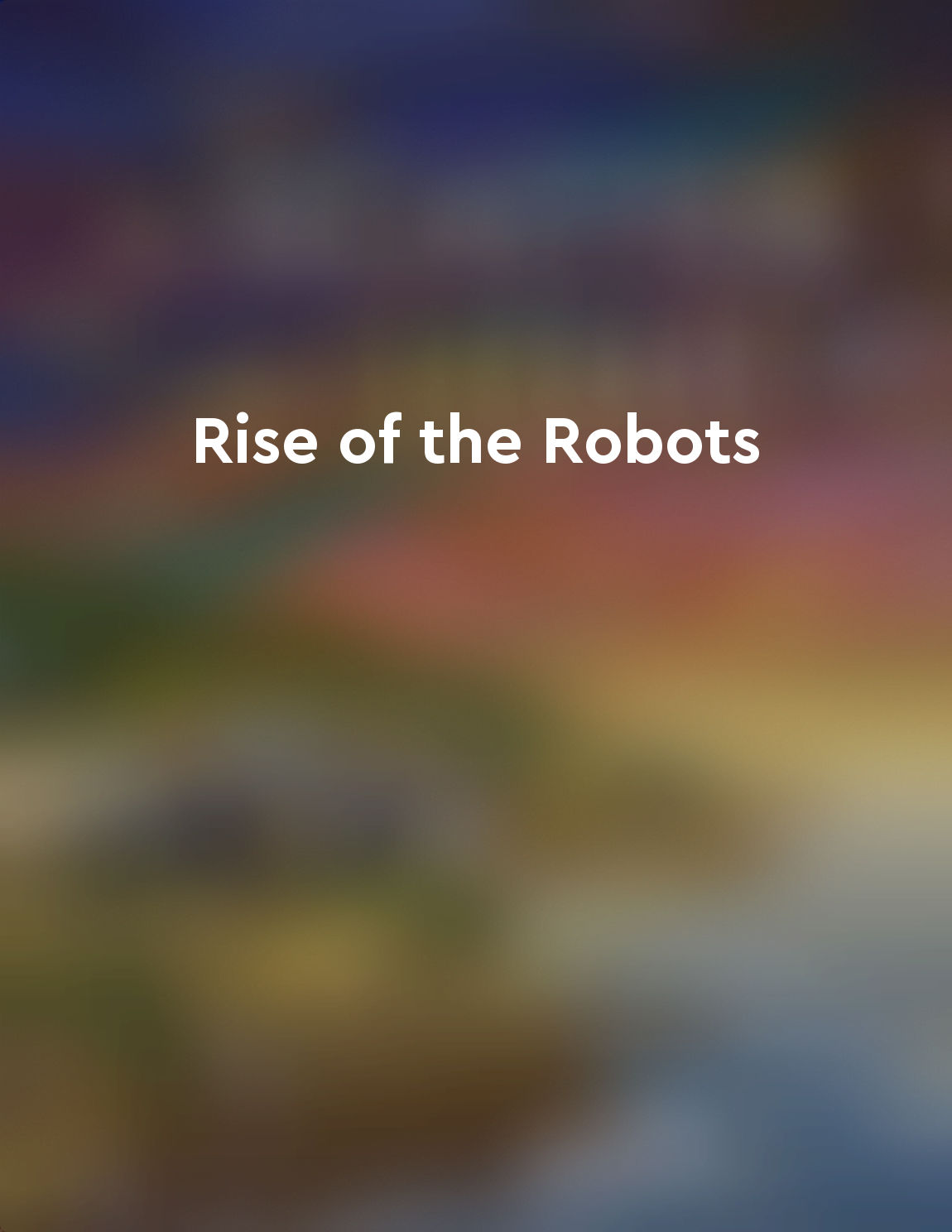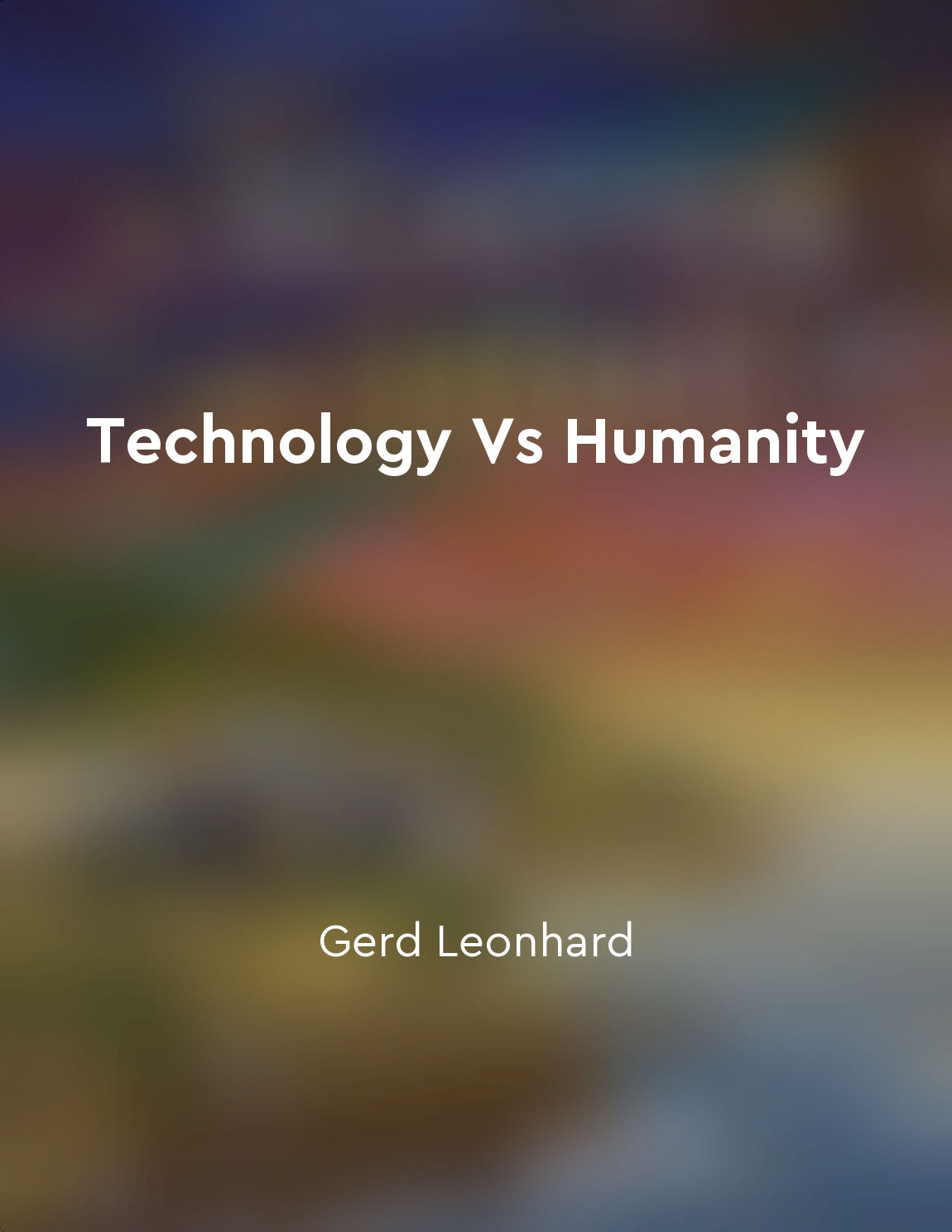Policies need to keep up with technological advancements from "summary" of The Second Machine Age by Erik Brynjolfsson,Andrew Mcafee
As technology continues to advance at an unprecedented rate, it is crucial for policies to evolve in tandem. The rapid pace of technological progress has far-reaching implications for various aspects of society, including the economy, education, and healthcare. Policies that fail to keep up with these advancements risk becoming outdated and ineffective in addressing the challenges posed by the "second machine age."One of the key reasons why policies need to keep pace with technological advancements is the potential for disruptive innovation. Emerging technologies such as artificial intelligence, robotics, and the Internet of Things have the power to revolutionize industries and create entirely new markets. Policymakers must be proactive in anticipating these changes and adapting regulations to foster innovation while safeguarding against potential risks. Furthermore, the increasing digitization of the economy has significant implications for workforce dynamics. Automation and digital platforms are reshaping the nature of work, leading to shifts in employment patterns and skills requirements. Policies need to be responsive to these changes by promoting lifelong learning initiatives, retraining programs, and social safety nets to support workers in transitioning to the digital economy. In addition to economic considerations, technological advancements also raise important ethical and social issues that policymakers must address. Issues such as data privacy, cybersecurity, and algorithmic bias require thoughtful regulation to protect individuals and ensure fairness in the digital realm. Policymakers must work closely with technologists, ethicists, and other stakeholders to develop regulatory frameworks that uphold fundamental values in the face of technological progress.- The ability of policies to keep up with technological advancements will determine the extent to which societies can harness the benefits of the second machine age while mitigating its potential risks. By fostering a regulatory environment that is agile, forward-thinking, and inclusive, policymakers can help ensure that technology serves as a force for progress and prosperity in the twenty-first century.
Similar Posts
Innovation is accelerating
The rate of technological progress is not constant; it is accelerating. We are living in a time when innovations are occurring ...

Automation is creating new opportunities for innovation and entrepreneurship
As technology continues to advance at an unprecedented rate, automation is revolutionizing industries and reshaping the workfor...
The ethical dilemmas of AI mirror those of human decisionmaking
The ethical dilemmas of AI are not so different from those faced by humans when making decisions. When machines are programmed ...
Embrace scientific advancements
It is imperative that we fully embrace scientific advancements as they hold the key to solving some of the most pressing issues...
Automation poses challenges for employment
Automation is undoubtedly the way forward - it's the future, the next big thing. But as with any major technological advancemen...

Human beings must not be reduced to data points
Reducing human beings to mere data points would be a grave mistake. Our uniqueness, complexity, and richness cannot be captured...

Automation is creating new opportunities for innovation and entrepreneurship
As technology continues to advance at an unprecedented rate, automation is revolutionizing industries and reshaping the workfor...

Cognitive revolution gave humans ability to create complex societies
The Cognitive Revolution was a significant turning point in human history. It marked the moment when our ancestors gained the a...

